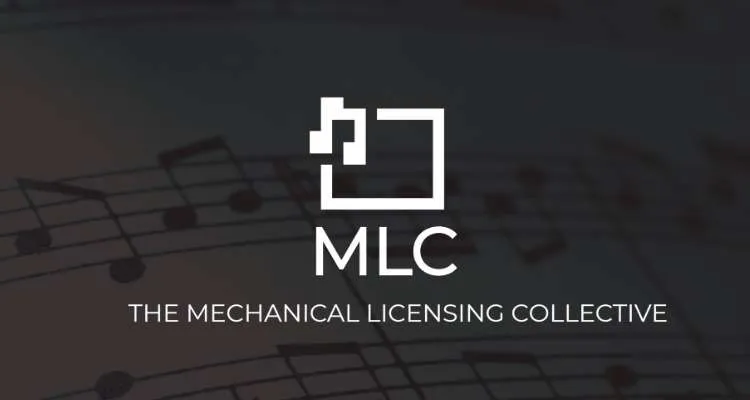Copyright Office Recommends Mechanical Licensing Collective Delay First Unclaimed-Royalties Distribution

The United States Copyright Office has officially released a report designed “to recommend best practices” for the Mechanical Licensing Collective (MLC) as it works to resolve unmatched royalties and make an inaugural unclaimed royalties distribution, including a far-reaching recommendation pertaining to the timetable associated with the entity’s first such distribution.
The USCO just recently published the document, spanning an astonishing 158 or so pages (117 pages for the report proper) and containing all manner of operational recommendations for the Mechanical Licensing Collective, which ingested north of $420 million worth of unpaid royalties from digital-service providers (DSPs) in mid-February of this year. Worth noting here is that these DSPs fronted the unmatched compensation to take advantage of “the limitation on liability for prior unlicensed uses” outlined in 2018’s Music Modernization Act (MMA).
Moreover, the MMA specifies that the Mechanical Licensing Collective must “hold accrued royalties associated with particular musical works (and shares of works) that remain unmatched for a period of not less than 3 years after the date on which the funds were received,” with the same requirement applying to the aforementioned tranche forwarded by DSPs, albeit with the three-year window beginning when the DSPs themselves accrued (not transferred) the royalties.
Interestingly, “although the statute says that the minimum three-year period begins to run from when the ‘funds were received by the [MLC],’ the Office recommends that the MLC, in practice, apply the minimum three-year period from the date that the unmatched usage associated with those funds is made available in the claiming portal [which is currently in development and is separate from the existing registration-focused portal], especially if there is any significant lag time between those events.”
The MLC doesn’t appear to have established a precise timetable for the rollout of the claiming portal, the mentioned registration counterpart of which arrived on the scene last year. Additionally, the entity made its inaugural royalty distribution in April, though it included mechanical (not unmatched) royalties. In any event, the report makes clear that the USCO prioritizes accuracy and thoroughness as opposed to expediency with regard to the MLC’s initial unclaimed-royalty distribution.
Upon the conclusion of the three-year holding period – which is designed to assure that the largest possible portion of the owed compensation reaches the appropriate parties – the remaining unmatched royalties turn to unclaimed royalties and “become eligible for distribution by relative market share” to the copyright owners identified by the MLC. And after the first such payout, at least one distribution must occur per subsequent calendar year.
But in spite of this already-lengthy holding window, the Copyright Office explained in a 75-word-long sentence: “There was broad consensus among commenters that distributions of unclaimed accrued royalties should not be incentivized or rushed, and that the holding period should be longer than the statutory minimum, at least for the first distribution, to provide appropriate time both for the MLC to begin operating at its maximum potential and for copyright owners to be educated about the MLC and the blanket license and register and claim through a robust and user-friendly portal.”
Elaborating upon the point, the USCO proceeded to disclose “that unclaimed royalties should be held for longer than the statutory minimum periods where appropriate, and that the length of the extended holding periods should be tied to whether specific criteria have been satisfied.
“In the case of the first distribution, the Office recommends that it not occur for at least five years from the date that the ability to claim in the portal is made available to the public with complete and full functionality and populated with all unmatched usage from periods prior to the license availability date,” continued the entity.
Furthermore, an incomplete beta portal “should not trigger the start of the five-year period,” which could even be made to span longer than half a decade – “the MLC should apply relevant criteria to determine whether the first distribution should be further deferred.
“SoundExchange’s history provides precedent for such a delay, and the Office believes a delay is reasonable and warranted here,” the document proceeds. “The MLC should confirm that it has achieved a high degree of overall data quality before making the first distribution, and to the extent measurable, the Office recommends that the first distribution not occur until at least a significant majority of all known musical works are reliably identified in the public database.
“The Office agrees with commenters and recommends that if the MLC is going to err, it should err on the side of holding unclaimed royalties longer,” wrote the USCO, which “does not believe such a minimum fixed period is so long that it would harm the industry as a whole or lead to the indefinite procrastination some commenters sought to avoid.”
Much of the remainder of the verbose report concerns seemingly obvious points – “the Office agrees with commenters that the MLC’s efforts to engage in education and outreach are critical and that there should not be a one-size-fits-all approach” and “the Office agrees with commenters that the MLC’s musical work repertoire and ownership data should be of sufficient quality to be considered authoritative.”
Expressing support for the USCO’s MLC recommendations in a statement, Songwriters Guild of America (SGA) president Rick Carnes said in part: “This is a critically important recommendation that gives songwriters and composers more time to claim the royalties they’re owed out of the at least $425 million in unmatched royalties currently being held by the MLC.”
